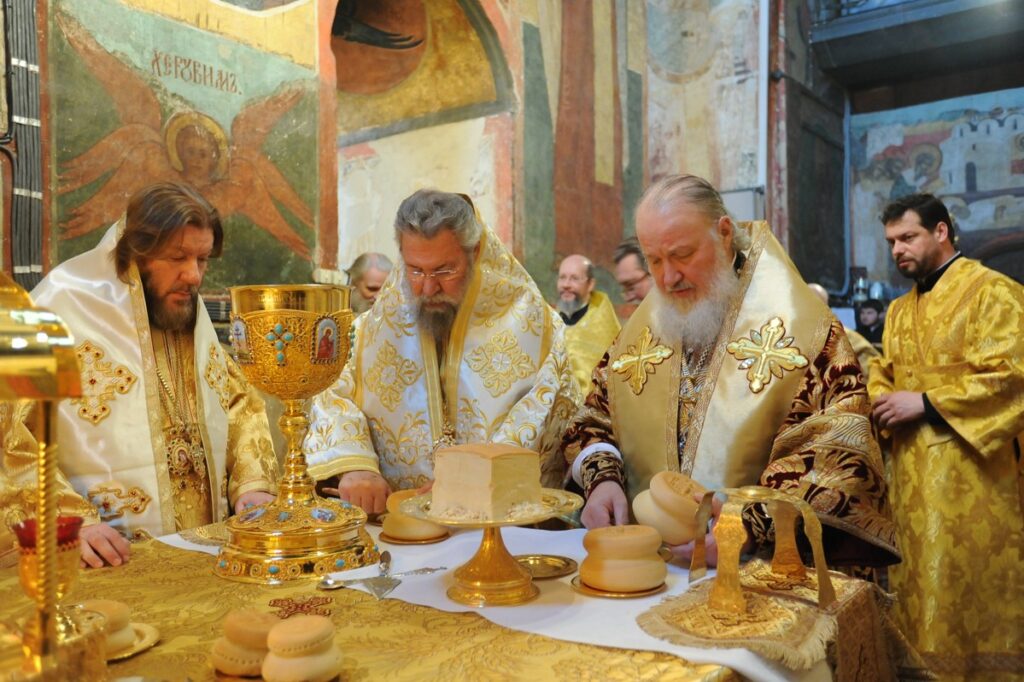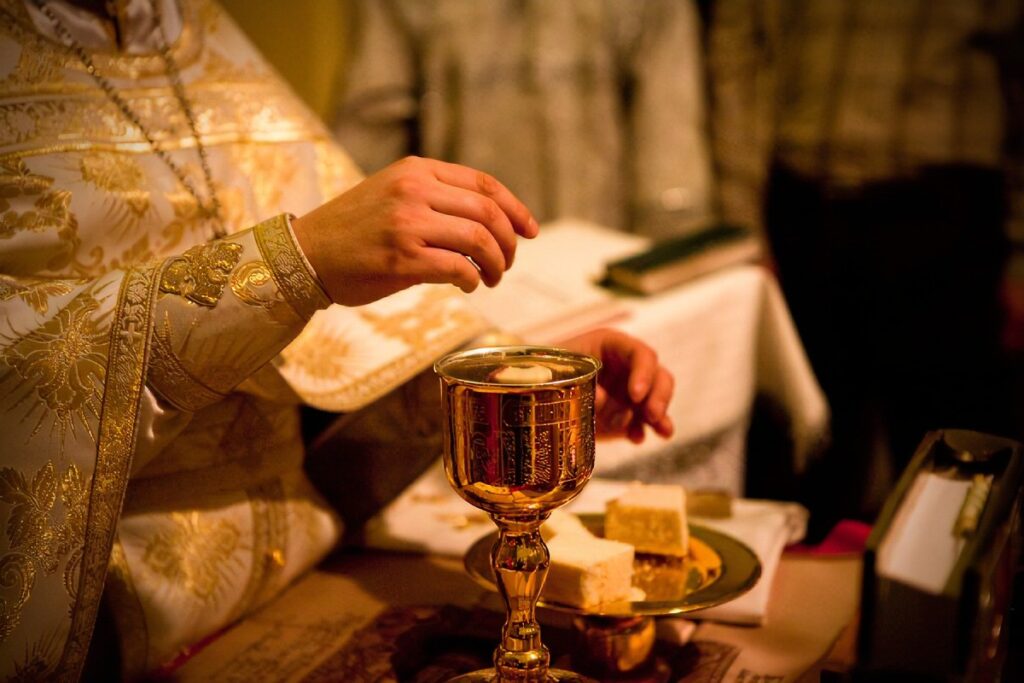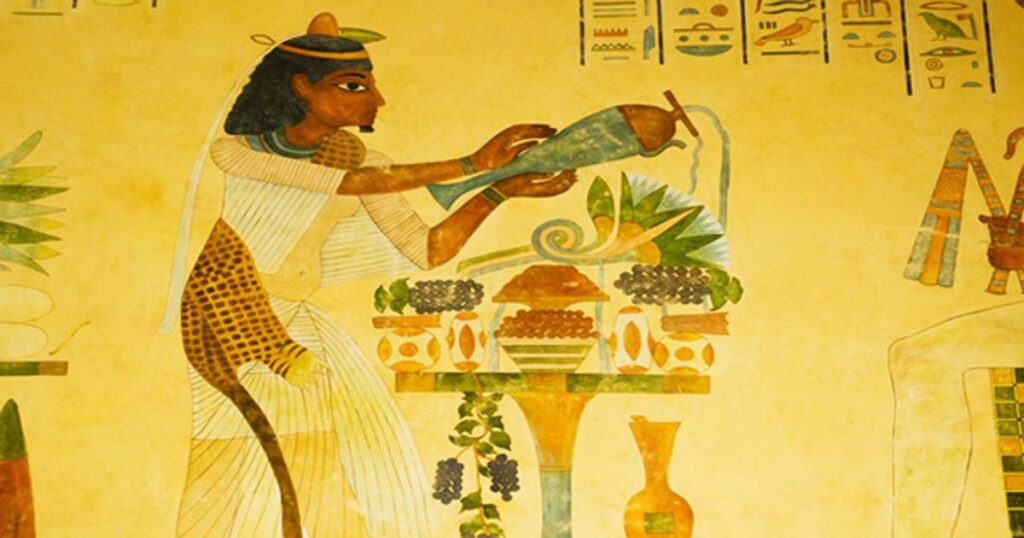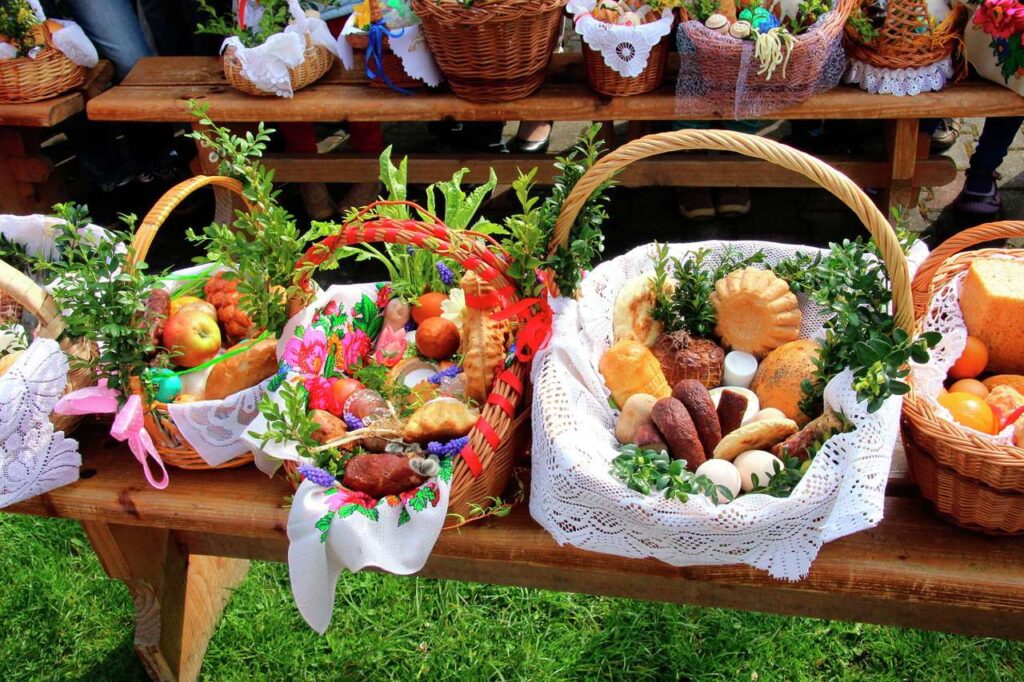Judge what I say. The cup of blessing that we bless, is it not communion in the blood of Christ? The bread that we break, is it not communion in the body of Christ? Because there is one bread we, the many, are one body, for we all share in one and the same bread. (1 Cor. 10:15-17)
Because the parish in Corinth–wealthy members, poor members, Gentile Christians, Jewish Christians, the “weak”, the “strong”–all partake of the one bread and the one cup at the Eucharist, they are one body. One fellowship. One community united in faith against the temptations and allurement of the fallen world. Although many, they are one–manifesting and revealing the Kingdom of God to all those willing to look and see.
That chalice, or rather, what the chalice holds, consecrated by the word of God, is the blood of Christ. Through these elements the Lord wished to entrust to us his body and the blood which he poured out for the remission of sins. If you have received worthily, you are what you have received.
St, Augustine of Hippo, Easter Sermon
St. Augustine reminds his congregation of what St. Paul told the Corinthians: they must partake of the bread and cup worthily. If they do not partake in a worthy manner, the Holy Gifts will destroy them rather than enliven them.
But St. Paul didn’t say the Corinthians had to be pure or sinless. He said they had to be worthy. Worthiness is a very different thing. To be worthy to touch, to be worthy to consume the Body of Christ does not mean to be sinless. As several English theologians in the 1600s and 1700s pointed out, to be worthy is to be committed to self-examination, committed to repentance, committed to always turning around, changing direction, re-orienting myself towards Christ. So I must always prepare to approach the Table by examining myself, reviewing what I have done and who I have been during the time since I last approached the Holy Table. Examine myself, measure myself against our standard—which is Christ—and determine how I might, in perhaps some single small way, turn my back on that person that I do not want to be and take some small step closer to being the person I was made to be in Christ.
To
be worthy of receiving Holy Communion, to dare to touch the Corpus Christi,
I must be committed to self-examination and repentance. One of those English
theologians, Simon Patrick[1] in 1660, suggested using a
phrase from the Gospel that Greek and Russian Christians use as they approach
the chalice: “Lord, remember me when you come in your kingdom.” The thief crucified
with Christ acknowledged Jesus as Lord and reoriented his life—turning his back
on his image of himself as a victim who was owed whatever he could take from
other people—and he asked Jesus to make a place for him in the Kingdom. What
was Jesus’ answer? “Today, you will be with me in paradise.” If we approach the
chalice with the self-examination, the reorientation of our lives, the words of
the thief—Remember me in your kingdom—Christ makes the same promise to us:
Today you will be with me in paradise. Today you will begin to live forever.
[1] Bishop of Ely, Mensa Mystica, or a Discourse concerning the Sacrament of the Lord’s Supper. (Prayer Book Spirituality, p. 283)




